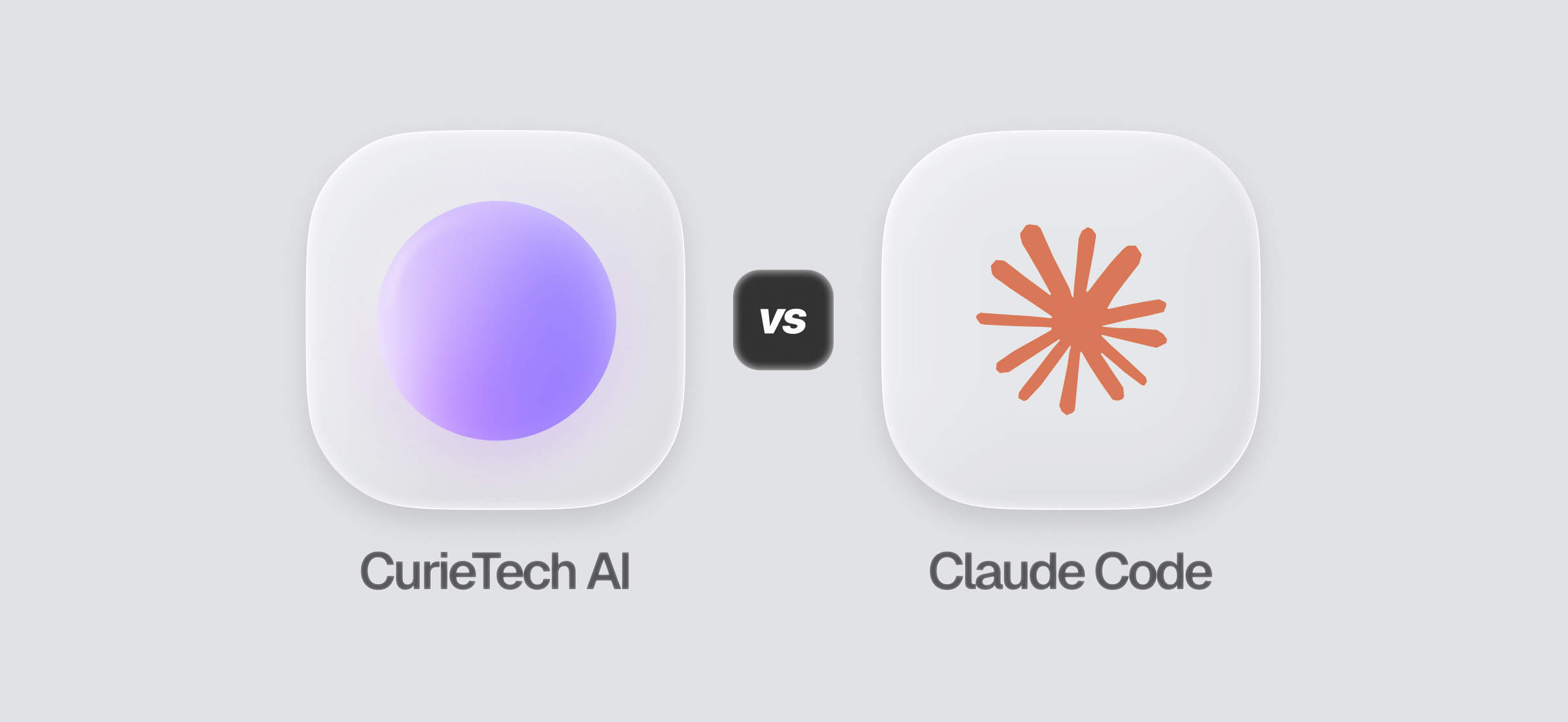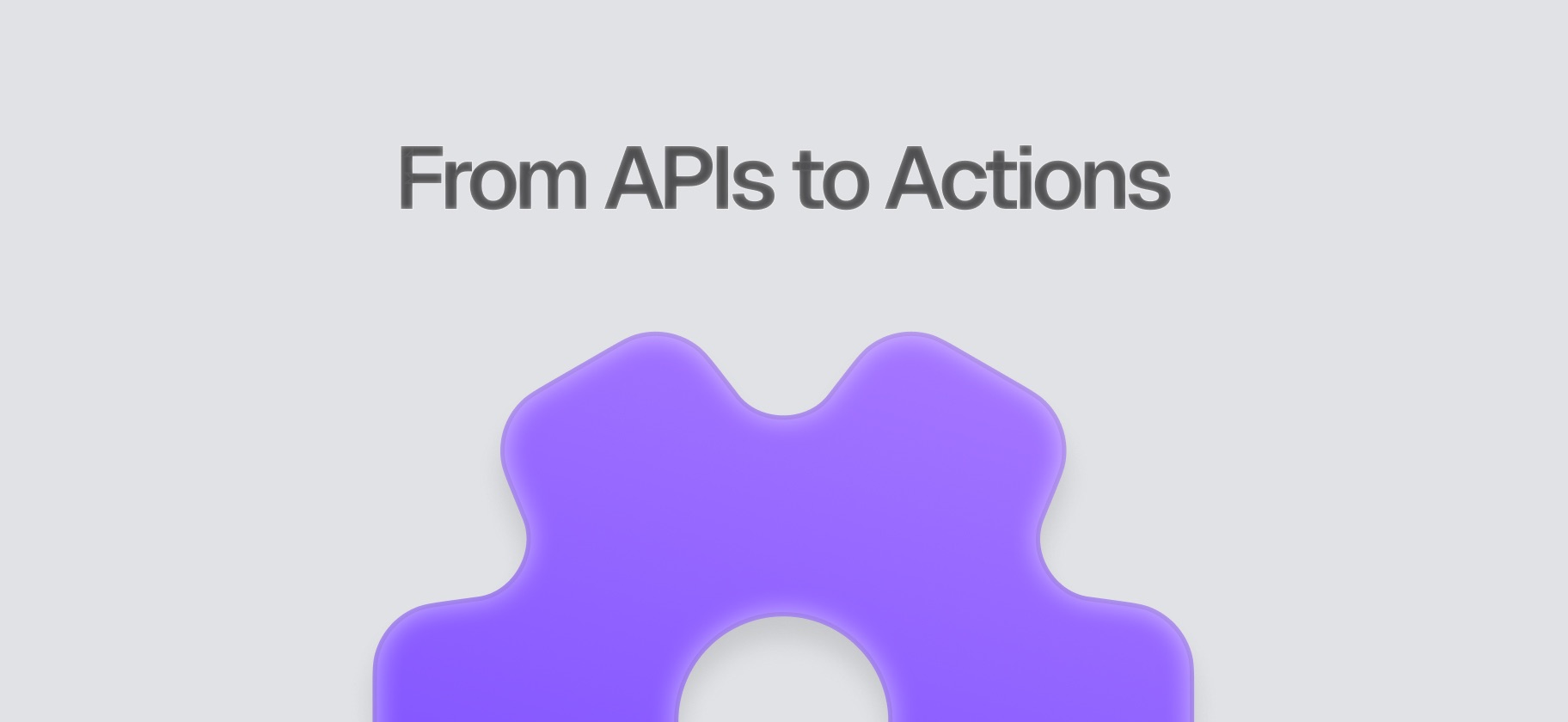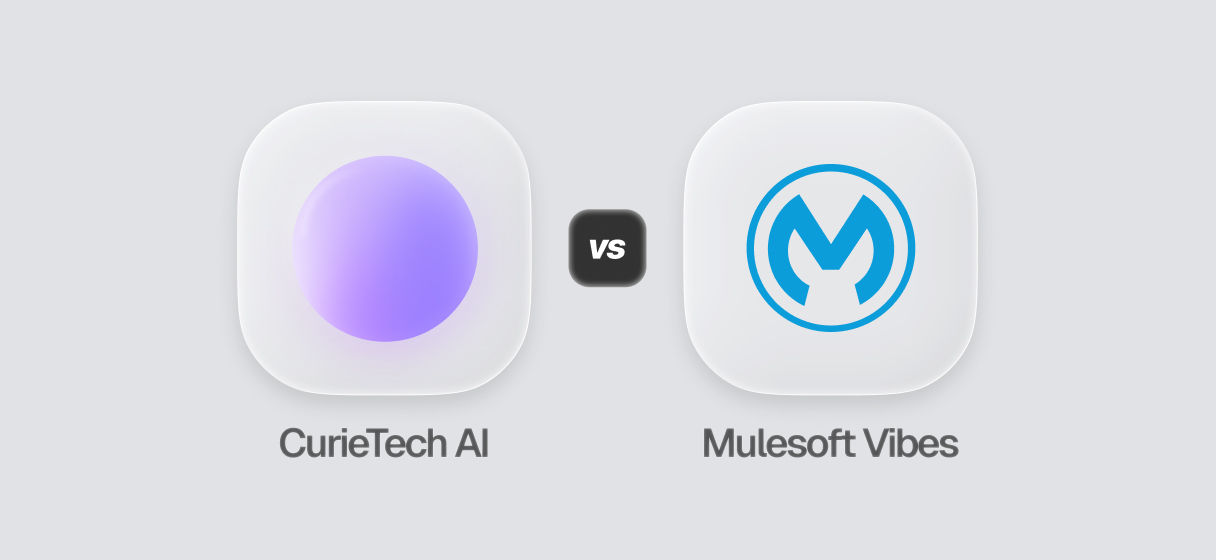We continue benchmarking general AI coding agents for MuleSoft development. This time we include Claude Code and compare its performance against the specialized CurieTech AI Agent, providing a clear, data-driven perspective on the current landscape of AI-assisted MuleSoft development. Our methodology remains consistent with our previous benchmarks, utilizing a suite of 80 real-world tasks that are representative of both simple and complex challenges in MuleSoft projects.
.png)
Quantitative Analysis: Performance in Context
Our evaluation places Claude Code's performance in the context of its peers in the general-purpose AI agent category. The results show a consistent pattern among these tools when applied to the specialized domain of MuleSoft development.
Simple Tasks: Claude Code achieved a 52% first-time success rate. This is identical to GitHub Copilot's 52% and slightly behind Cursor's 57%.
Complex Tasks: On more demanding tasks, Claude Code's accuracy dropped to 42%. This is a marginal improvement over Cursor's 37% and GitHub Copilot's 32%, but still underscores the challenge that generalist agents face with increasing complexity.
These figures suggest that while there are minor variations, the overall effectiveness of leading general-purpose AI agents for MuleSoft tasks remains in a similar range. They perform adequately on simpler, more contained problems but struggle to maintain reliability as the scope and complexity of the tasks grow.
Qualitative Analysis: A Pattern of Familiar Errors
The types of errors made by Claude Code are as revealing as its success rate. Critically, the mistakes are highly similar to those observed with both GitHub Copilot and Cursor, pointing to a shared weakness among non-specialized agents in understanding the specific nuances of the MuleSoft platform. These mistakes consistently manifest across several key aspects of the development process.
We observed frequent issues with incorrect connector and component configurations, logical flaws in DataWeave scripts, an inability to resolve project-wide dependencies, and the creation of superfluous project files. This pattern suggests that without specialized training, general-purpose agents struggle to grasp the holistic structure and specific syntax required for robust MuleSoft development.
.png)
.png)
.png)
Conclusion: A Consistent Picture for General-Purpose Agents
Our analysis of Claude Code reinforces a key finding from our previous benchmarks: general-purpose AI coding assistants, while powerful, exhibit similar performance ceilings and error patterns when applied to MuleSoft development. Claude Code's accuracy and the nature of its mistakes align closely with those of GitHub Copilot and Cursor.
This consistency suggests that the primary limitation is not the underlying large language model, but the lack of deep, domain-specific knowledge required for the intricacies of enterprise integration. For development teams seeking to maximize efficiency and reliability in MuleSoft projects, the data indicates that a specialized, platform-aware AI agent remains a more effective solution.





.jpg)